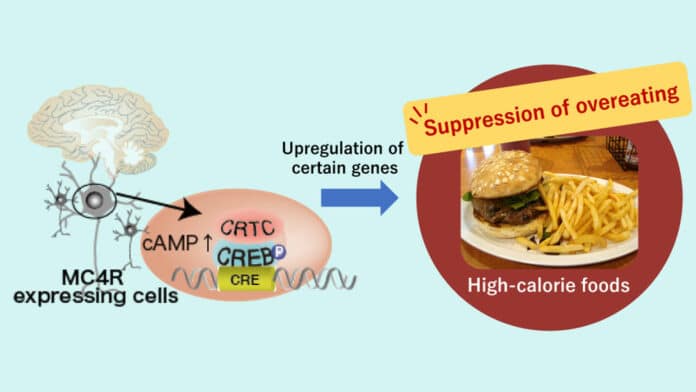It has recently become evident that the human gene CREB-Regulated Transcription Coactivator 1 (CRTC1) is linked to obesity. Mice lacking CRTC1 develop obesity, which suggests that CRTC1 in normal operation prevents obesity. The specific neurons that reduce obesity and the mechanism they contain are yet unclear, though, because CRTC1 is found in all brain neurons.
An investigation team led by Associate Professor Shigenobu Matsumura from the Graduate School of Human Life and Ecology at Osaka Metropolitan University focused on neurons expressing the melanocortin-4 receptor (MC4R) to clarify the mechanism by which CRTC1 suppresses obesity. They postulated that because MC4R gene mutations are known to produce obesity, CRTC1 expression in MC4R-expressing neurons will reduce obesity. To investigate the impact that losing CRTC1 in those neurons had on obesity and diabetes, they developed a line of mice that expresses CRTC1 normally aside from in MC4R-expressing neurons where it is blocked.
The mice lacking CRTC1 in MC4R-expressing neurons did not differ from control mice in terms of body weight when given a regular diet. The CRTC1-deficient animals overate were noticeably more obese than the control mice and eventually acquired diabetes when they were fed a high-fat diet.
Professor Matsumura said, “This study has revealed the role that the CRTC1 gene plays in the brain and part of the mechanism that stops us from overeating high-calorie, fatty, and sugary foods. We hope this will lead to a better understanding of what causes people to overeat.”
Journal Reference:
- Shigenobu Matsumura, Motoki Miyakita, Haruka Miyamori, et al. CRTC1 deficiency, specifically in melanocortin-4 receptor-expressing cells, induces hyperphagia, obesity, and insulin resistance. FASEB Journal. DOI: 10.1096/fj.202200617R
